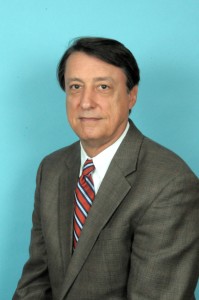Executive Summary
Coming soon to a branch office in your neighborhood: the latest – and greatest – fiduciary standard ever! No scaling. No cutting or gutting! Blended just the way Wall Street likes it.
Forget that the fiduciary duty is an overlay of principles designed to fill in the gaps of law and regulation to assure that the adviser acts in the best interest of the client. A traditional fiduciary duty, relying on legal precedent, would create an overarching, nearly bullet-proof standard unassailable by Wall Street lawyers eager to poke Swiss cheese holes in it.
In a July 14th letter to the SEC by Wall Street’s trade industry group, the Securities Industry and Financial Markets Association (SIFMA) noted that the mere mention of this fiduciary overlay in the SEC’s Jan. 21st study raised “serious concern[s]” among its member firms. Not to worry. SIFMA offers up to the SEC a Ginsu knife so sharp that not even Dan Akroyd, the SNL late night purveyor of the Super Bass-O-Matic 76, would be able to slice and dice a fish into little pieces as fast.
In perhaps the driest of dry comment letters to the SEC on the subject, SIFMA lays out for the first time in significant detail the framework of how it thinks a uniform fiduciary duty for brokers and advisers should work in practice. In short, stick it into a new and improved Bass-O-Matic courtesy of Wall Street, not Ronco.
For one thing, even though Congress specified that under a uniform duty brokers would have to place the client’s interests first, SIFMA reminds the SEC how painful and impractical this would be. Quoting from Dodd-Frank, SIFMA warns that brokers and advisers “act[ing] in the best interest of the customer without regard to the financial or other interest of the broker, dealer, or investment adviser providing the advice,“ [emphasis added in the letter] could require firms to operate a conflicts-free business. Oh the horror!
On its surface, though, the larger the firm, the more conflicts, of course. After all, some broker-dealers do more than just provide trade execution. Investment banks, for example, cannot operate without conflicts in underwriting and selling initial and secondary offerings to customers, nor should one be required to act as a fiduciary if a customer wants to execute his own trades. Yet in trumpeting the success of this system in managing conflicts in the past, SIFMA conveniently omits the fact that it failed horribly in managing these systemic risks three years ago – so horribly so that it nearly brought down the financial system.
Secondly, SIFMA wants the SEC to forget about the plain-English meaning of the word ‘uniform’ as it is applied to a fiduciary standard for both brokers and advisers. SIFMA envisions “[e]xisting case law, guidance, and other legal precedent developed under Section 206 of the Advisers Act would continue to apply to investment advisers.” Section 206, for those of you without a photographic memory, is the anti-fraud section of the Investment Advisers Act of 1940 that was interpreted by the U.S. Supreme Court to impose a fiduciary standard on investment advisers under SEC v. Capital Gains Research Bureau. The word ‘fiduciary’ was mentioned nowhere in the ’40 Act before Dodd-Frank. However, what’s good for the goose is not necessarily good for the gander. The slicing and dicing quickly returns with SIFMA stating a preference that “[w]hile there would be many parallels [to a uniform standard], this Section 206 precedent would not apply to broker-dealers.” Brokerage firms, SIFMA reasons, operate under a different model – again conveniently forgetting that it supports regulatory harmonization for brokers and advisers where both provide personalized investment advice.
SIFMA goes even further by insisting that since Congress referenced only Sections 206(1) and (2), but not (3), which addresses self-dealing, it could not have meant principal transactions were a problem for fiduciary advisors. Again, SIFMA fails to note that Congress considered principal trading to be a BIG problem for commercial banks, into which most investment banks converted during the financial crisis, and that the Volcker Rule now limits principal trading on the banks’ own account due to systemic risk concerns.
One of the exclusions from fiduciary conduct that SIFMA recommends are financial planning tools and calculators that input client information, as long as they do not recommend specific investments. If approved by the SEC, this would actually roll back the fiduciary envelope even further than where it was under the old Merrill Lynch Rule, where the standard practice for fee-based brokerage accounts was to have the financial planning recommendations calculated in the RIA [fiduciary] back office before turning them over to the registered representative for implementation under FINRA rules.
SIFMA’s letter continues in mind-numbing detail about other exclusions from the uniform fiduciary standard, but I’ll stop for now. No doubt others will jump in with counterpoints in the coming weeks.
Still, as shocking as Wall Street’s low opinion of cardinal fiduciary principles might be, its position is nothing but consistent. SIFMA President Tim Ryan, testifying on the differences between a fiduciary and suitability standard in March 2009, reminded Congress that “[t]he RAND report makes clear that individual investors generally do not understand, appreciate, or care about such legal distinctions.”
If only Laraine Newman, Akroyd’s SNL comrade on the Ronco skit, could have testified, too. After taking a huge, satisfied gulp from the Bass-O-Matic, she exclaimed: “Wow. That’s terrific bass!”





Leave a Reply